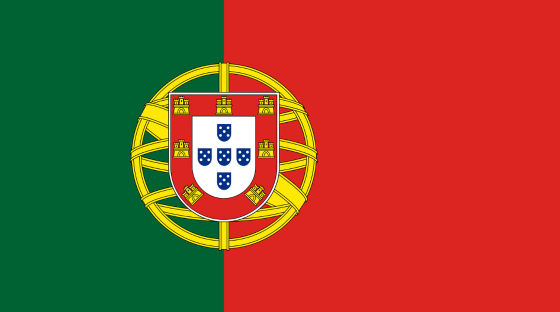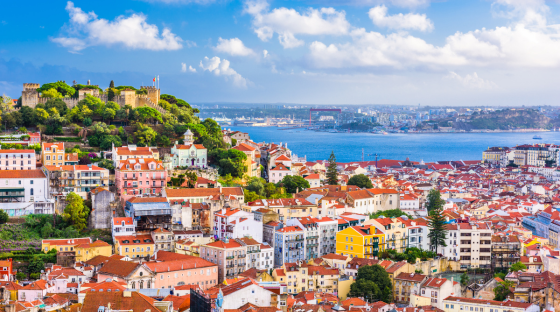Portugal

Overview
Portugal has a thriving tech community that is greatly boosted by foreign investment attracted by the government’s open-door policy, which sees both domestic and foreign investors subject to the same rules. Coined the “warm Berlin”, the capital Lisbon is attracting record levels of foreign investment in software and IT, with unicorns such as Feedzai, which uses AI to detect fraudulent payments, online luxury fashion platform Farfetch, coding software provider OutSystems and cloud-based contact center Talkdesk among those putting Portugal on the technology map.
Having retained the same defined borders since 1139, Portugal is the oldest country in Europe. Whereas it once discovered the world through exploration by sea, tourists are now fast discovering Portugal. During the Age of Discovery, in the 15th, 16th and 17th centuries, Portugal was among the countries leading the charge, with Ferdinand Magellan becoming the first person to circumnavigate the globe.
Now, with tourists drawn by its sunny climate, beaches, viticulture, cuisine and cultural and religious heritage, Portugal is among the top 10 most-visited European nations. It is also a very safe place to visit, currently ranked seventh on the Global Peace Index.
The Accelerance Global Network is the most curated list of high-quality global teams ever assembled.
40
Developers
Total number of developers in our certified partner network by country
1
Certified Partner
Total number of certified partners in our global network by country.
7hrs
Time Travel (From NY)
Average flight time from NY to the major cities in the country.
90
Partner Innovation capability
The score reflects investment in STEM progrms and IT funding by country.
92
Partner Skill Level
Level of workforce skills and quality of education, including factors such as digital literacy, interpersonal skills, etc.
87
Partner Global Competitiveness
National productivity based on 12 core pillars, including government policy, infrastructure, economic stability, etc.
High
Software Outsourcing Readiness
Overall rating, based on the maturity of the tech sector, socio-political conditions, and on-the-ground research by Accelerance.

Talent Pool & Education
Portugal’s tech sector has boomed since 2010 on the back of favorable tax and visa policies. The non-habitual residence (NHR) programme fixed foreigners' tax on income earned in the country at 20% for 10 years. This regime, along with the so-called golden visa scheme whereby an investment could be traded for a Portuguese passport, attracted large numbers of professionals, with the vast majority of the former working in the field of computer science. However, the NHR program was closed to new applicants at the end of 2023.
Tech salaries increased significantly in 2022 but stabilized in 2024 and remain low by European standards. A recent survey found that 16% of professionals in the sector work remotely for a company based beyond the country’s borders, an abrupt decrease from 22.6% in 2023. Non-Portuguese IT professionals now make up 15.7% of the local IT workforce, with the bulk of them originating from Brazil.
According to the EY European Attractiveness Survey 2023, Portugal was the sixth most-attractive country in Europe for Foreign Direct Investment. The US and Switzerland were the leading investors and the most attractive sectors were software and IT services, transportation manufacturers, and transportation logistics.
Language
Portuguese is the official language, but English usage is rated as “very high” in the latest edition of the EF English Proficiency Index. A third of the population speaks and understands English, often with a good degree of fluency.

Economic Outlook
Moderate economic growth is forecast to continue through 2024 before improving in 2025. Domestic demand is expected to be the main driver, on the back of a steady increase in wages and employment. GDP growth is expected to nudge 2% through to the end of 2025. Investment is projected to grow at a strong pace, helped by the implementation of the Recovery and Resilience Plan (RRP), as well as by the recent improvement in economic sentiment.
Foreign tourism is tipped to slow but remains an important growth factor. Economically, the country’s direct links to Russia and Ukraine are limited, minimizing repercussions from the ongoing conflict there. The government is expected to continue to run a small balance of payments surplus, while public investment is likely to further expand through implementation of the RRP and other EU-funded programmes.
These steady-as-she goes projects continue Portugal’s recovery from a steep economic downturn triggered by the global pandemic. A €32 million deep tech fund, dedicated to boosting ocean sustainability and climate action innovation, was launched in 2022 by Lisbon-based venture capital firm Faber, exceeding its initial target.
Political Conditions
Portugal is a stable parliamentary democracy with a multi-party political system and has a strong pattern of peaceful power transfers through elections since it returned to democracy in the late 1970s. Civil liberties are generally protected.
The current Prime Minister is Luís Filipe Montenegro. A lawyer and leader of the Social Democratic Party, he was sworn in in April 2024 and chose to rule with a minority government rather than form a coalition with the ascendant right-wing populist parity, Chega, whose leader he labeled "often xenophobic, racist, populist and excessively demagogic".
Portugal’s previous head of state, António Costa (2015-2023), was selected for the presidency of the European Council in June 2024. This came after Costa, who combines social-democratic values with an orthodox approach to the economy, was forced to resign as prime minister in late 2023 amid a corruption scandal involving staff and associates. The investigation is ongoing.
Learn more about our customer stories.
Looking for a customer story in a specific technology or industry? Discover compelling customer narratives within a specific technology or industry that resonate with your unique software development needs.


.png?width=300&name=Copy%20of%20WEBSITE%20Stop%20Chasing%20Low%20Hourly%20Rates%20Unlock%20the%20True%20Value%20of%20Offshore%20Development%20(450%20x%20253%20px).png)



